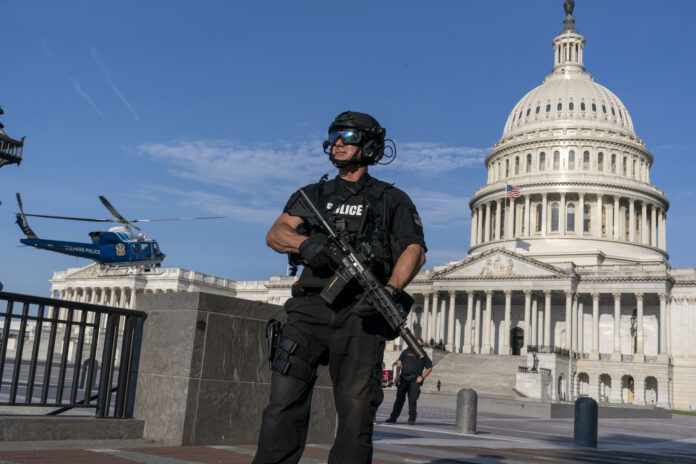While the pro-Israel lobby AIPAC reels under growing Democratic criticism, the United States sinks deeper into a devastating shutdown, orchestrated by a White House bent on total confrontation. Congress is fracturing, diplomacy is adrift, and the federal machinery itself begins to falter.
Democrats Break with AIPAC: A Broader Political Shift
The news barely made headlines, yet it marks a historic rupture: House Democratic leader Hakeem Jeffries has distanced himself from AIPAC, leaning instead toward J Street, an organization considered more moderate—and openly critical of Netanyahu’s Israel. Just a few years ago, such a move would have been unthinkable. AIPAC was, and to some extent remains, a mandatory checkpoint for serious political ambitions in Washington.
This realignment comes as unwavering support for Israel has turned into an electoral liability in key districts. Young Democratic voters, deeply affected by images from Gaza and increasingly vocal on human rights, no longer view AIPAC as a strategic ally but rather as a toxic burden. Jeffries, once derided as “AIPAC Shakur,” now seems keen to adapt to this new generation, increasingly unbound from Cold War reflexes.
Shutdown: Trump Pushes Chaos to the Brink with Layoffs
At the same time, another rupture shakes Washington: the federal budget crisis. The country has entered its second week of shutdown, with Donald Trump implementing a “maximum pain” strategy. This time it’s not just furloughs—actual federal layoffs have begun. Trump blames Democrats, accusing them of blocking the budget out of stubborn ideology.
The Republican administration is playing with fire: infrastructure projects halted, air travel jeopardized, homeland security thinned. Trump bets on public exhaustion and the eventual surrender of Senate Democrats.
AIPAC and the Shutdown: Twin Symptoms of Institutional Decline
These dual crises—AIPAC’s weakening and the budget impasse—aren’t isolated. They signal a slow but persistent disintegration of American political order. The federal state, once a symbol of coherent power, now appears torn by contradictions, with special interests and electoral calculations outweighing national unity.
In this context, the Democratic retreat from AIPAC isn’t necessarily a moral awakening—it’s a tactical withdrawal. Leaders are seeking to maintain support from a radicalized base without severing access to traditional donors. It’s an unstable balancing act that mirrors a deeper institutional fragility.
Money vs. Conscience: The American Dilemma
AIPAC will undoubtedly strike back, wielding its traditional weapon: money. “Without us, your campaigns die.” But this threat carries less weight in a country where political elites are seen as detached, corrupt, and beholden to foreign interests. Even AIPAC’s signature Israel trips for freshmen lawmakers are losing attendees.
Meanwhile, the budget standoff drags on. Both parties remain entrenched. Behind the scenes, everyone knows the real arbiter is Wall Street: if bond yields spike, financial pressure will force a deal. But at what institutional cost?
America’s Silent Disintegration
These twin developments—AIPAC weakened and state paralyzed—reveal the same trend: the United States is entering a phase of advanced political disintegration. Not a civil war, not a revolution—but something quieter and more corrosive: inertia, mistrust, and the repeated collapse of consensus.
Trump, a brutal tactician, embodies the logic of confrontation. The Democrats, for their part, sway between outdated moral reflexes and new electoral demands. Meanwhile, the American people watch—numb or resigned—as their political center of gravity crumbles.



